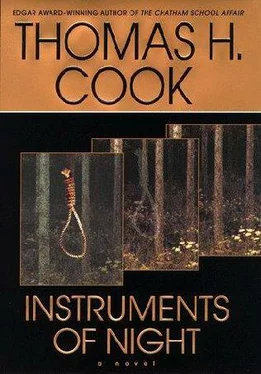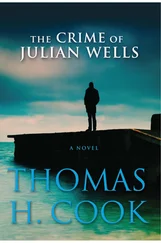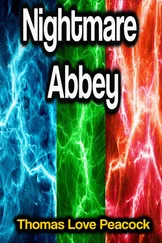Thomas Cook - Instruments of Night
Здесь есть возможность читать онлайн «Thomas Cook - Instruments of Night» весь текст электронной книги совершенно бесплатно (целиком полную версию без сокращений). В некоторых случаях можно слушать аудио, скачать через торрент в формате fb2 и присутствует краткое содержание. Жанр: Триллер, на английском языке. Описание произведения, (предисловие) а так же отзывы посетителей доступны на портале библиотеки ЛибКат.
- Название:Instruments of Night
- Автор:
- Жанр:
- Год:неизвестен
- ISBN:нет данных
- Рейтинг книги:3 / 5. Голосов: 1
-
Избранное:Добавить в избранное
- Отзывы:
-
Ваша оценка:
- 60
- 1
- 2
- 3
- 4
- 5
Instruments of Night: краткое содержание, описание и аннотация
Предлагаем к чтению аннотацию, описание, краткое содержание или предисловие (зависит от того, что написал сам автор книги «Instruments of Night»). Если вы не нашли необходимую информацию о книге — напишите в комментариях, мы постараемся отыскать её.
Instruments of Night — читать онлайн бесплатно полную книгу (весь текст) целиком
Ниже представлен текст книги, разбитый по страницам. Система сохранения места последней прочитанной страницы, позволяет с удобством читать онлайн бесплатно книгу «Instruments of Night», без необходимости каждый раз заново искать на чём Вы остановились. Поставьте закладку, и сможете в любой момент перейти на страницу, на которой закончили чтение.
Интервал:
Закладка:
Graves could see her mind working, little lights in her dark eyes, subtle, nearly invisible, but unmistakably flashing, the mark, he recognized, of a very great intelligence.
“Who was the murdered girl?”
The turn in the conversation surprised Graves. Eleanor Stern’s mind worked like a grappling hook-seizing subjects, impaling them. He felt that he was now dangling from that hook, would not be released until he’d told her everything.
“Her name was Faye,” he answered. “Faye Harrison. She was sixteen years old. She lived here on the estate with her mother. The mother taught at a local school. An old fashioned sort of teacher, I’ve been told. Heavy on grammar, punctuation, that sort of thing.”
Eleanor nodded. For a moment Graves imagined her as a child, seated at a long dining table, brilliant people all around her, a welter of dazzling talk, her young eyes darting from one person to the next, effortlessly following several conversations at once.
“When was she murdered?” Eleanor asked.
“In August 1946.”
“That’s a long time ago. Why is Miss Davies looking into it again?”
Suspicious, Graves thought, she is already suspicious, already probing, poised to check the attic, then the cellar, draw open the forbidden door.
“I mean, it’s been more than fifty years, after all,” Eleanor persisted. “That’s a long time to dwell upon a single event, don’t you think? Even one as striking as a murder.”
The suspicion lingered in her voice. For that reason Graves sensed that Eleanor Stern’s suspiciousness was inherent in the way she saw things. For her, the human world was a landscape strewn with pits and snares, the mind her only means to maneuver through the bramble, avoid the iron traps.
“Not long ago, Faye’s mother wrote Miss Davies a letter,” Graves told her. “She said she’d never have any peace until she found out what happened to her daughter.”
“So the murderer was never found?” Eleanor’s eyes had narrowed slightly as she’d asked the question, a gesture of intensifying interest, as Graves recognized, a sense of drawing the subject inward, holding it in a subtle vise.
“No. There was a suspect. A man named Mosley. But he was never arrested. He died not long after the murder.”
Eleanor nodded. Graves saw something fire in her mind, a connection, two wires meeting in a sudden spark. “But if you found that the suspect had, in fact, done it, then you’d have to convince Mrs. Harrison of it?”
“Yes, I suppose I would.”
“But if the suspect didn’t do it, then you’d have to find the real killer?”
“Not exactly. I’m only supposed to ‘imagine’ who it was.”
“So it doesn’t have to be true,” Eleanor murmured. “Just believable. To give the girl’s mother closure.” She cast her eyes about the room, its stateliness and splendor. “Murder in a place like this,” she added thoughtfully. “A perfect world.”
Graves was not sure what this woman might think of that world, the one he’d agreed to investigate while at Riverwood, and whose chief characteristic, according to Allison Davies, had been a tender innocence. He thought of the photographs he’d already studied, two girls in a boat, on a pier, lounging in a gazebo. What would Eleanor Stern think of such images? Would she see Faye and Allison as Miss Davies did? As two innocent, healthy, happy teenagers in a bright sunlight? Or would she see them already veiled in shadows?
“Life sometimes takes a cruel twist,” Eleanor Stern said.
Graves suddenly thought of the “cruel twist” that had destroyed his sister and devastated his life. To dull its building ache, he returned to the more distant murder of Faye Harrison. “Faye came to the house that morning.” In his mind he saw Faye at the entrance in her blue dress, her face wreathed in a curious dread. “Miss Davies saw her standing at the door. She thinks Faye might have wanted the two of them to meet at their ‘secret place.’”
The words themselves appeared to deepen Eleanor’s interest. “Secret place,” she repeated.
“Indian Rock, it’s called. But Miss Davies didn’t meet Faye there. She went back to this room. That’s where she’d been earlier, when she’d heard her brother and her father talking in the foyer.”
Eleanor’s eyes drifted toward the door at the entrance to the room. “They must have been talking rather loudly, don’t you think? If Miss Davies had heard them all the way here.”
Graves nodded. He hadn’t noticed the distance before then.
“An argument, perhaps.” Eleanor thought a moment, then said, “Where did Faye go after that?”
“I don’t know. I haven’t traced her any farther than to the front door. I only know that about a half hour later she came around the side of the house and walked toward the woods. Miss Davies never saw her again. No one did, except for a local boy, a hiker, who saw her going down Mohonk Trail at the time.”
“And so Miss Davies thinks that if she’d let Faye into the house that morning, she might have saved her life.”
“Either that, or gone into the woods with her.”
“Of course, if she’d done that, she might have been killed too,” Eleanor pointed out, exactly as Graves himself had. “That would have been more difficult, of course. Unless there were two killers.”
Graves felt Sykes suddenly draw near him, hollow-eyed and cowering, Kessler’s obedient tool, fixed in his eternal cowardice. He could feel himself being sucked back into the world he had created for them, the nightbound city where they waited in the fog, or at the end of the alleyway, behind the oddly opened door.
But these were not places Graves wanted to return to-at least not yet-and so he quickly acted to prevent it. “What about you?” he asked Eleanor Stern. “What are you working on?”
“A play,” Eleanor replied. “More or less autobiographical.” She did not seem interested in pursuing the subject. “From what you’ve told me about your novels, I take it you don’t write autobiographically.”
“No, I don’t.”
“Then I suppose your life has been as uneventful as mine. No trauma at all.”
Graves smelled honeysuckle, felt once again the sense of safety that had briefly settled over him before; in an instant, the perfume had been overtaken by a blast of sweet, gummy breath, the warm touch of the night by the bony grasp of fingers on his shoulder, the rasp of crickets by a voice, low, threatening, What you looking at, boy?
“What was your first novel about?” Eleanor asked.
The bony fingers tightened around Graves’ shoulder; the nails bit into his flesh. “A kidnapping. Of a little boy.”
“Was it the first of your series?”
“Yes.”
“And your hero, who is he?”
In his mind Graves saw not Slovak, but Sheriff Sloane as he lumbered away from Mrs. Flexner’s house, weary, his broad shoulders slumped, resigned that the boy would never speak, and as a result, that he-Sloane-would never know the truth, never find and bring to justice whoever it was who’d slaughtered Gwendolyn Graves, hung her from a beam and mutilated her. For a moment Graves returned to that last afternoon, remembered how during the brief few seconds before he’d pulled away, the sheriff had stared at him from behind the dusty windshield. As if he were before him now, he heard again the old man’s futile questions. What did you see that night, Paul? Why won’t you tell me what you saw?
“Slovak,” Graves said, now forcing himself to concentrate on Eleanor’s question.
“And your villain?”
Graves smelled the breath again, felt the man jerk the hoe from his trembling fingers. Gimme that. You won’t be needing it.
“Kessler,” he replied, then glimpsed a small, cringing figure in the darkness, his wet, slavish eyes fixed upon Kessler. “And he has a kind of personal servant.” The name fell from his mouth like a piece of torn flesh. “Sykes.”
Читать дальшеИнтервал:
Закладка:
Похожие книги на «Instruments of Night»
Представляем Вашему вниманию похожие книги на «Instruments of Night» списком для выбора. Мы отобрали схожую по названию и смыслу литературу в надежде предоставить читателям больше вариантов отыскать новые, интересные, ещё непрочитанные произведения.
Обсуждение, отзывы о книге «Instruments of Night» и просто собственные мнения читателей. Оставьте ваши комментарии, напишите, что Вы думаете о произведении, его смысле или главных героях. Укажите что конкретно понравилось, а что нет, и почему Вы так считаете.












